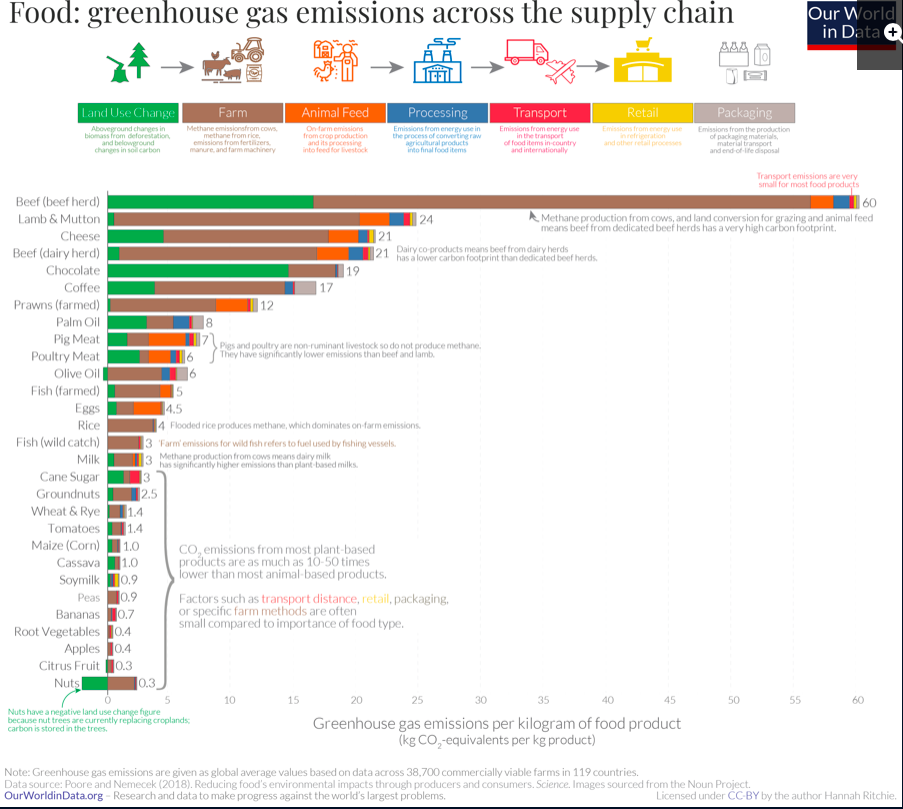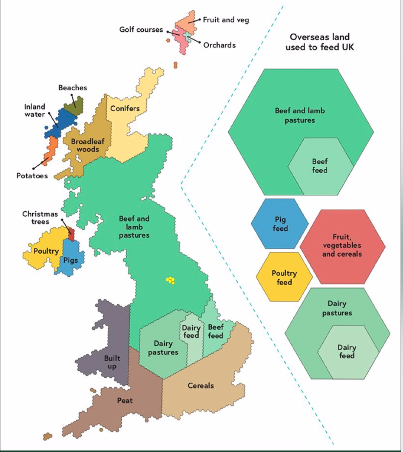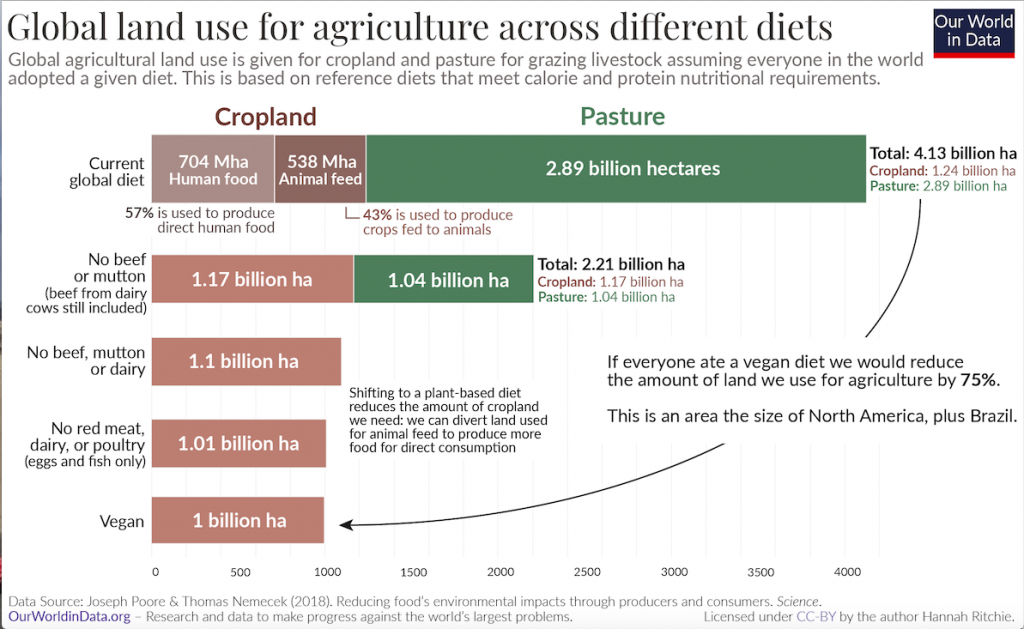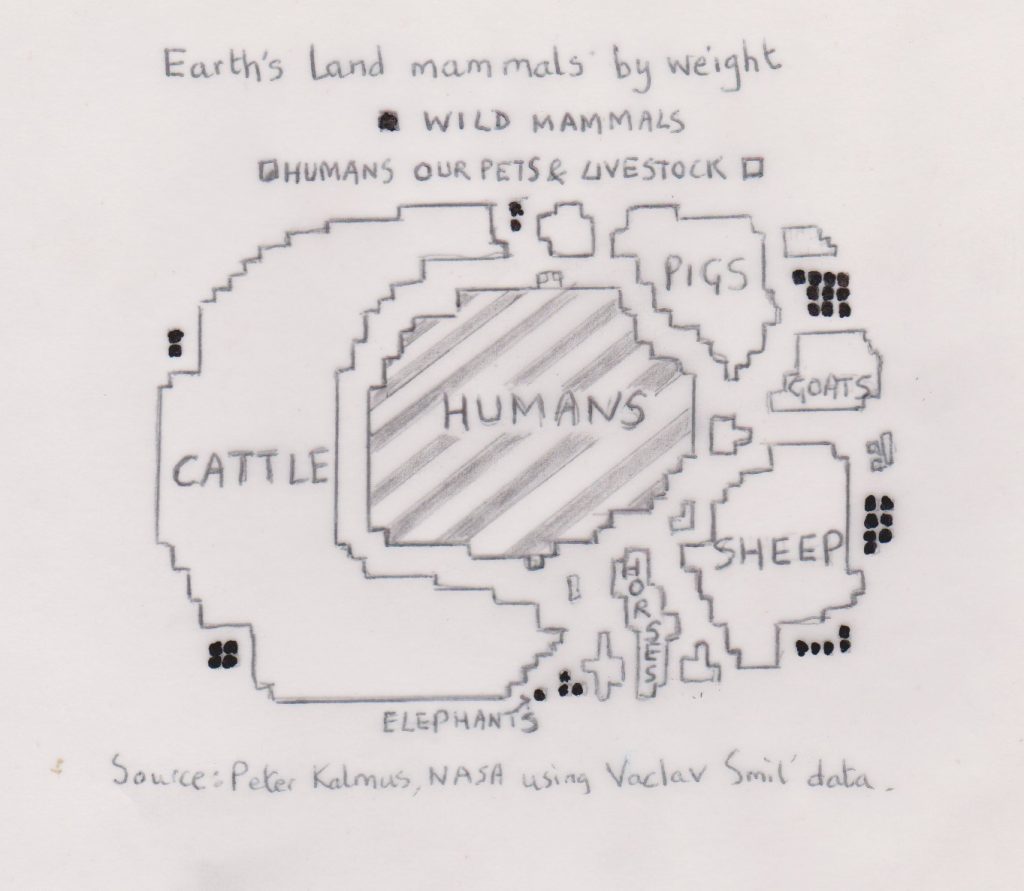Milborne Port Climate and Nature Action group
For a diet that will sustain us, what’s at steak?
The NHS advises us to eat no more than 70g of red meat a day for health. For sustainability, the Committee on Climate Change recommends a 20% reduction in meat and dairy by 2030. The Planetary Health Diet (by leading scientists representing disciplines including agriculture and public health) has a daily average of 14g of red meat and 29g of poultry.

Why so little? Two reasons. Firstly, eating meat is inefficient because mammals use energy to keep warm and move: eg 6-10 kg of plant food is needed to produce 1kg of beef and a lot of that 1kg is bone, skin and guts. This means that if the world went vegan (which nobody is suggesting) we’d need less cropland than we currently use to feed humans and livestock!
UK Land Area divided by purpose: Source: Carbon Brief

Secondly, livestock account for 14.5% of all global emissions. Cows, sheep and goats contribute massively to this total as (unlike pigs and poultry) they produce methane, a greenhouse gas 80x as potent as carbon dioxide.

Most people think that eating locally is much better for the climate than going vegetarian; in reality, the opposite is true, as the chart above shows.

The graphics show how by eating less meat there will be more room for natural solutions – growing trees, conservation restoration and land management actions that increase carbon storage and avoid greenhouse gas emissions, and allow room for the restoration of biodiversity. These solutions have the potential to deliver up to a third of the reduction in emissions we need by 2030, and help the UK be more self-sufficient in food.
We have years, not decades, to address the interconnected crises of climate change and biodiversity loss;
eating more plants is one significant step towards achieving this.